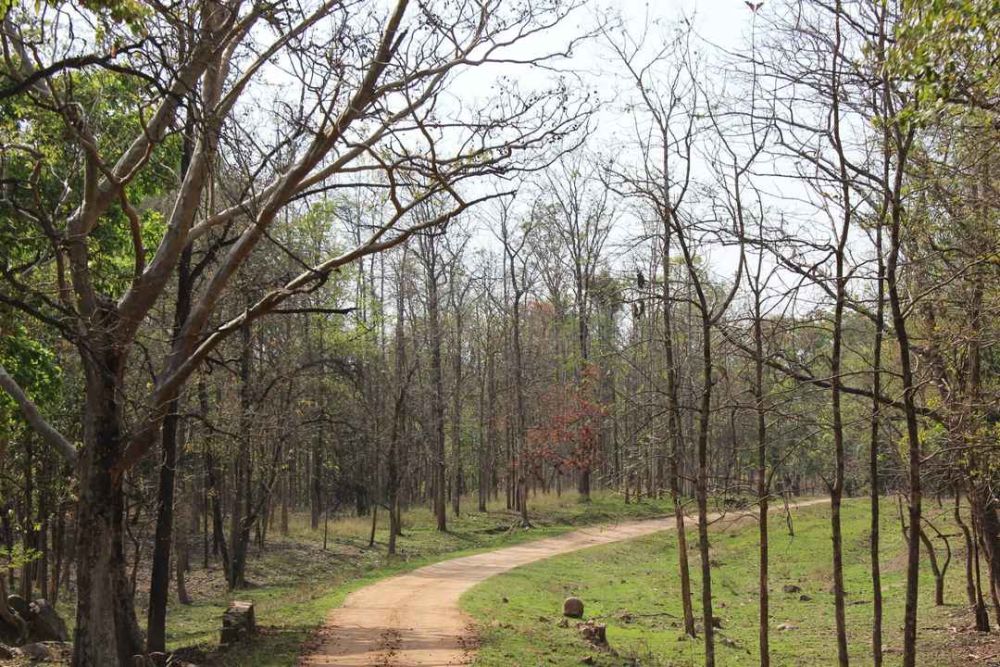

The region of Chhindimatta Road located within Pench National Park in Madhya Pradesh, India, boasts not just a biodiversity-rich landscape but also a fascinating history tied to its tourism. Historically, the area was known for its lush forests and incredible wildlife, including tigers, leopards, and various species of deer.
The foundations of tourism in Pench can be traced back to its initial recognition as a wildlife sanctuary in 1977. However, it was the park's upgrade to a national park in 1983 and later to a tiger reserve under the Project Tiger initiative in 1992 that solidified its status as a significant ecotourism hub. The Central Government's conservation efforts to protect the majestic Bengal tigers and other endangered species attracted wildlife enthusiasts from around the globe.
The development of Chhindimatta Road provided much-needed access through Pench National Park, significantly aiding in increasing tourist influx. As the park became more accessible, a number of eco-lodges, resorts, and other accommodations started to appear along this route, ensuring that visitors could enjoy comfortable stays while experiencing the natural beauty of Pench.
The popularity of Pench National Park and Chhindimatta Road received an additional boost thanks to Rudyard Kipling’s renowned work, "The Jungle Book". Although it's debated whether the park was an actual setting for Kipling's stories, many believe that the lush forests of Pench served as inspiration for the fictional landscapes where Mowgli’s adventures unfolded. This connection has always been a major draw for tourists wanting to experience the land that sparked Kipling's imagination.
In recent years, tourism trends towards Pench National Park have been leaning strongly towards sustainable and responsible travel. Visitors are becoming increasingly aware of their ecological footprint, opting for eco-friendly accommodations and patronizing businesses that contribute to conservation efforts.
Wildlife safaris remain the park's central attraction, with the months of October to June being the most popular times to visit, as the park remains closed during the monsoon season. Tourist activities have expanded from traditional jeep safaris to include walking trails, bird watching tours, and night safaris, all aiming to give visitors a holistic and immersive experience of the park's diverse ecosystem.
Going forward, the blend of rich wildlife, the aura of "The Jungle Book", and the increased focus on sustainability is set to keep Pench National Park, with Chhindimatta Road as its lifeline, as a top destination for nature lovers and adventure seekers from all over the world.
While tourism has been a boon for the region, it also poses challenges such as managing the human impact on the environment and ensuring that tourism development is balanced with conservation. There are ongoing efforts to improve the infrastructure while minimizing the ecological impact to keep up with the evolving demands of modern eco-tourism.
Authorities and local communities are working hand in hand to maintain the delicate balance between development and conservation, ensuring that Pench National Park remains a sanctuary for its wildlife and a unique destination for tourists in the years to come.